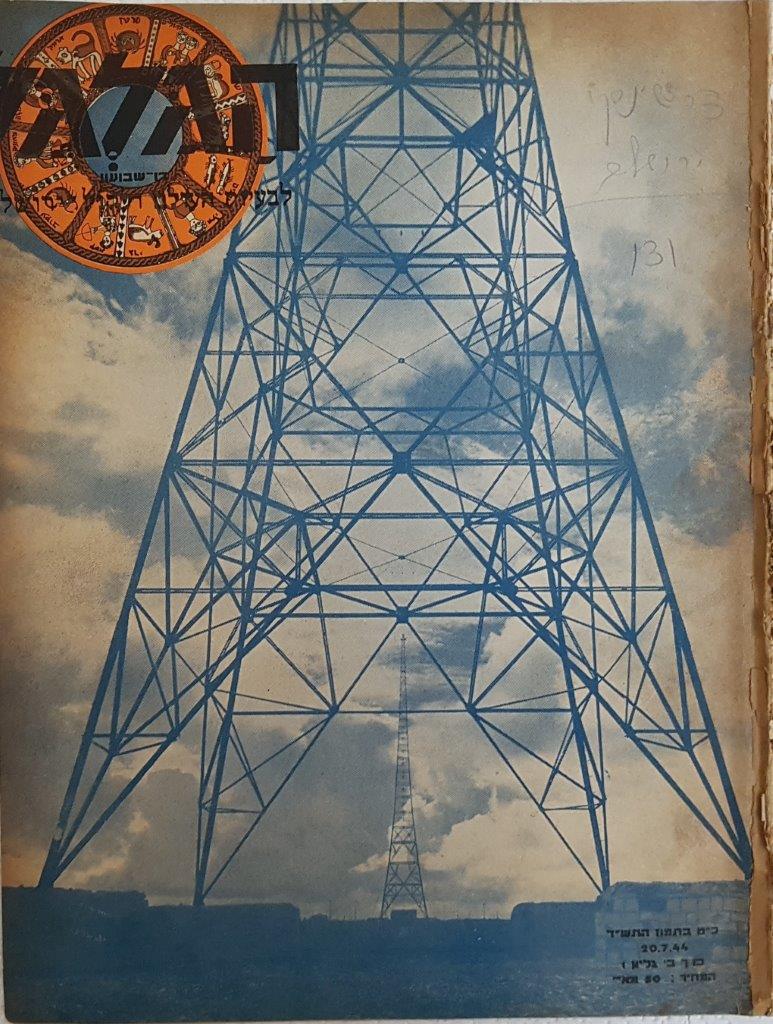
Digitizing History: Palestine Broadcasting Service, 1936-1948
(under Construction)
under construction
Writers Reading their own Works
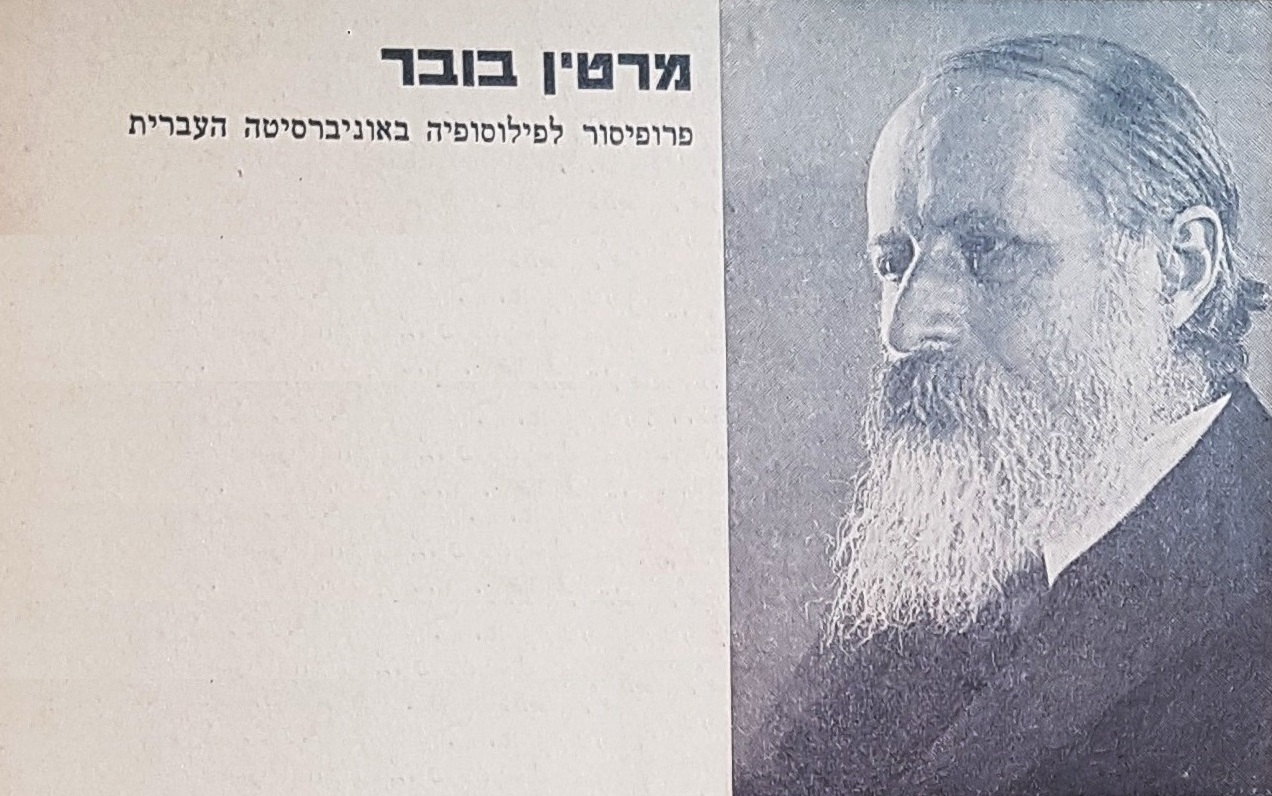
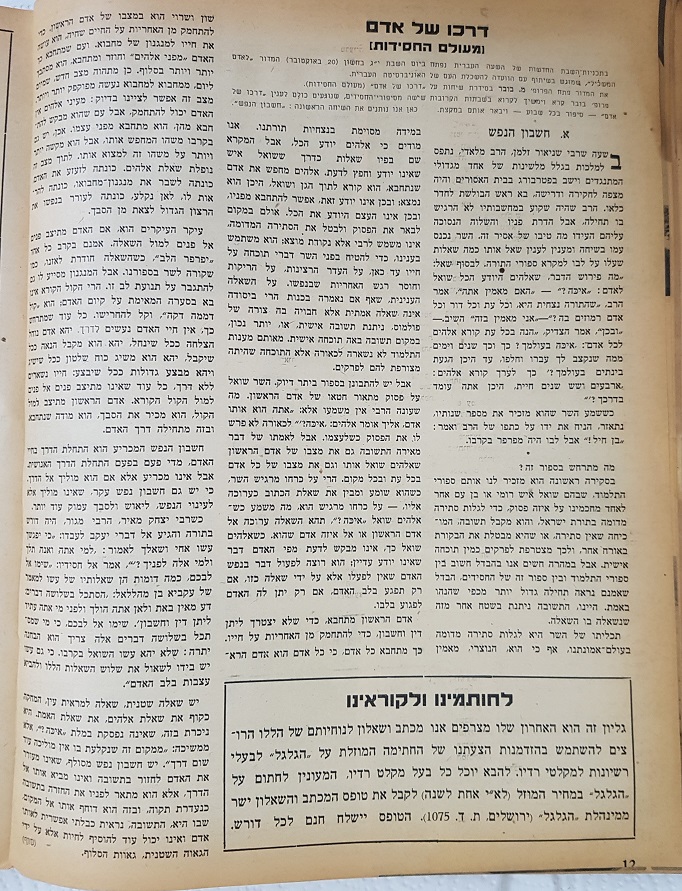
Martin Buber : Reading from his own work, The Way of Man: According to the Teaching of Hasidism (1945)
A series of six (6) weekly 15-minute broadcasts (in Hebrew) aired on Saturdays, beginning October 20, 1945.
Transcripts appeared a couple of weeks after each broadcast in the weekly radio magazine Hagalgal
It was part of a wider series of broadcasts presented in collaboration with the Committee for Public Education of the Hebrew University. הועדה להשכלת העם של האוניברסיטה העברית
Unfortunately, there are no known audio recordings of these early broadcasts currently in existence.
To see the transcripts that appeared in the magazine Hagalgal:
CLICK HERE
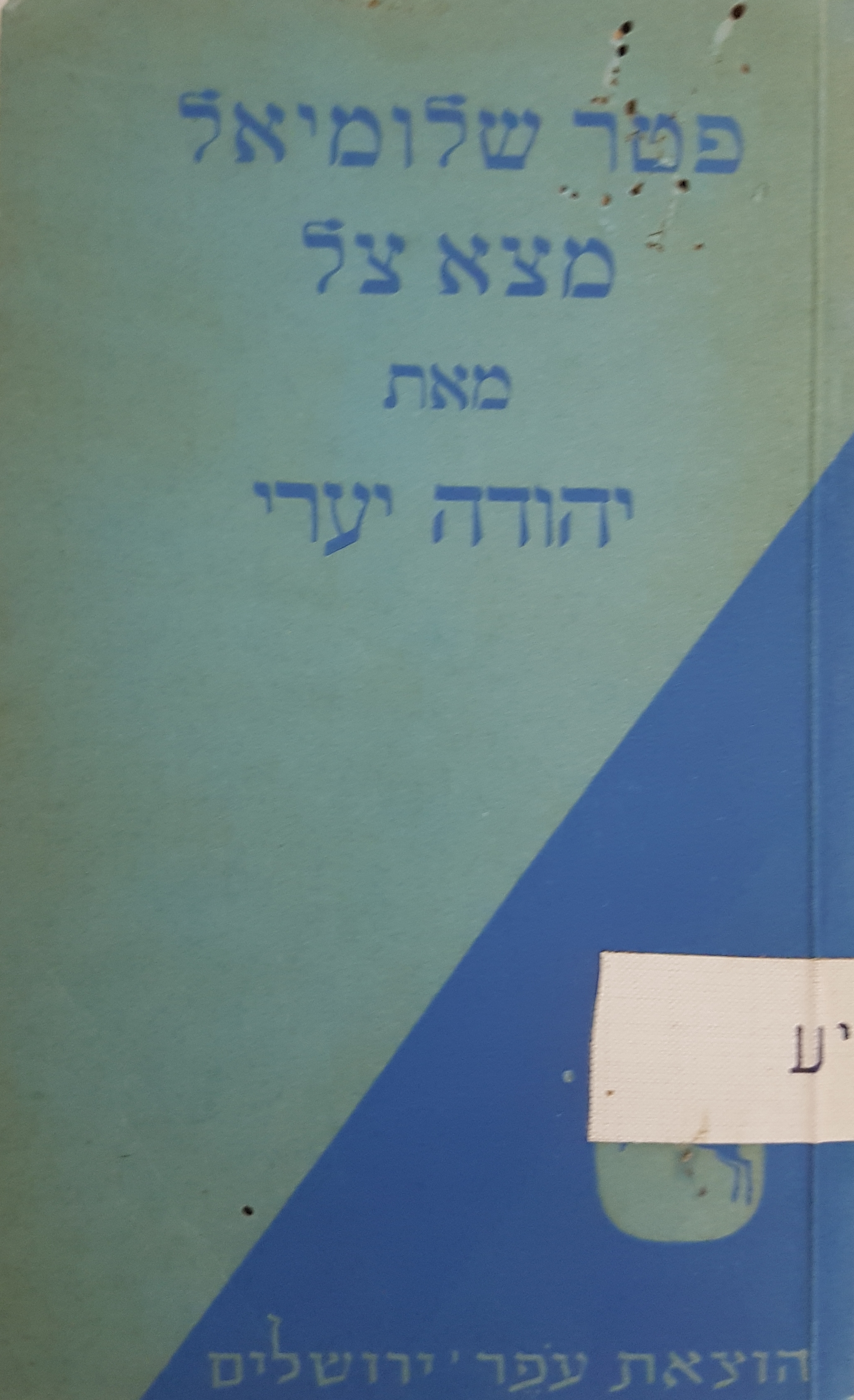
Yehuda Ya'ari: Reading Peter Schlemihl Found His Shadow
April 23, 1945, Yehuda Ya'ari presented, in Hebrew, the first of his six 15-minute broadcasts for the Palestine Broadcasting Service (PBS), reading from his then just published short story Peter Shlumiel Matza Tzel (Peter Schlemihl Found His Shadow, Ofer Publishing House. Ya'ari was clearly inspired after reading French-German writer Adelbert Chamisso's classic Peter Schlemihl: The Shadowless Man - A story without an end", by Carode, which was first published around 1812. The original story was about Peter Schlemihl, a person who sold his soul with the devil to be able to live forever and get riches beyond belief. On receiving this gift he immediately regretted it, as the devil took his shadow as payment. He would be shunned by society, stigmatized by ordinary folk who were frightened at the sight of a person without a shadow. Instead of enjoying life, he was forever cursed to hunt for his shadow to get it back.
[An aside: Could this be the origin or inspiration of Peter Pan, the boy who lived forever, by Scottish writer, James M. Barrie. (1911). In Chaptert II, of Peter Pan, Peter loses his shadow, as Wendy's dog, Nana, bites it off as Peter makes his escape through the window. Wendy places it in a drawer for safe keeping.]
Ya'ari, living in Jerusalem at that time, realized he could make a sequel to the original Chamisso story. The shadow being a metaphor, representing anyone who felt loss of identity, but particularly the Jewish people's relationship with Palestine, characterized by the slogan "A land without a nation for a nation without a land" - a variation to a phrase said to be coined around 1844 by a another Scotsman, a clergyman, the Rev. Dr. Alexander Keith (1781-1880).
Schlemihl was broadcast every Monday and Wednesday, each broadcast, a separate chapter in this 6-chapter short story. Yitzhak (Shenhar) Shenberg (1902-1957) presented an introduction to the series, transcribed in Hagalgal Volume 2, No. 31, page 18
Once again, sadly, there are currently no known audio recordings of any of these broadcasts.
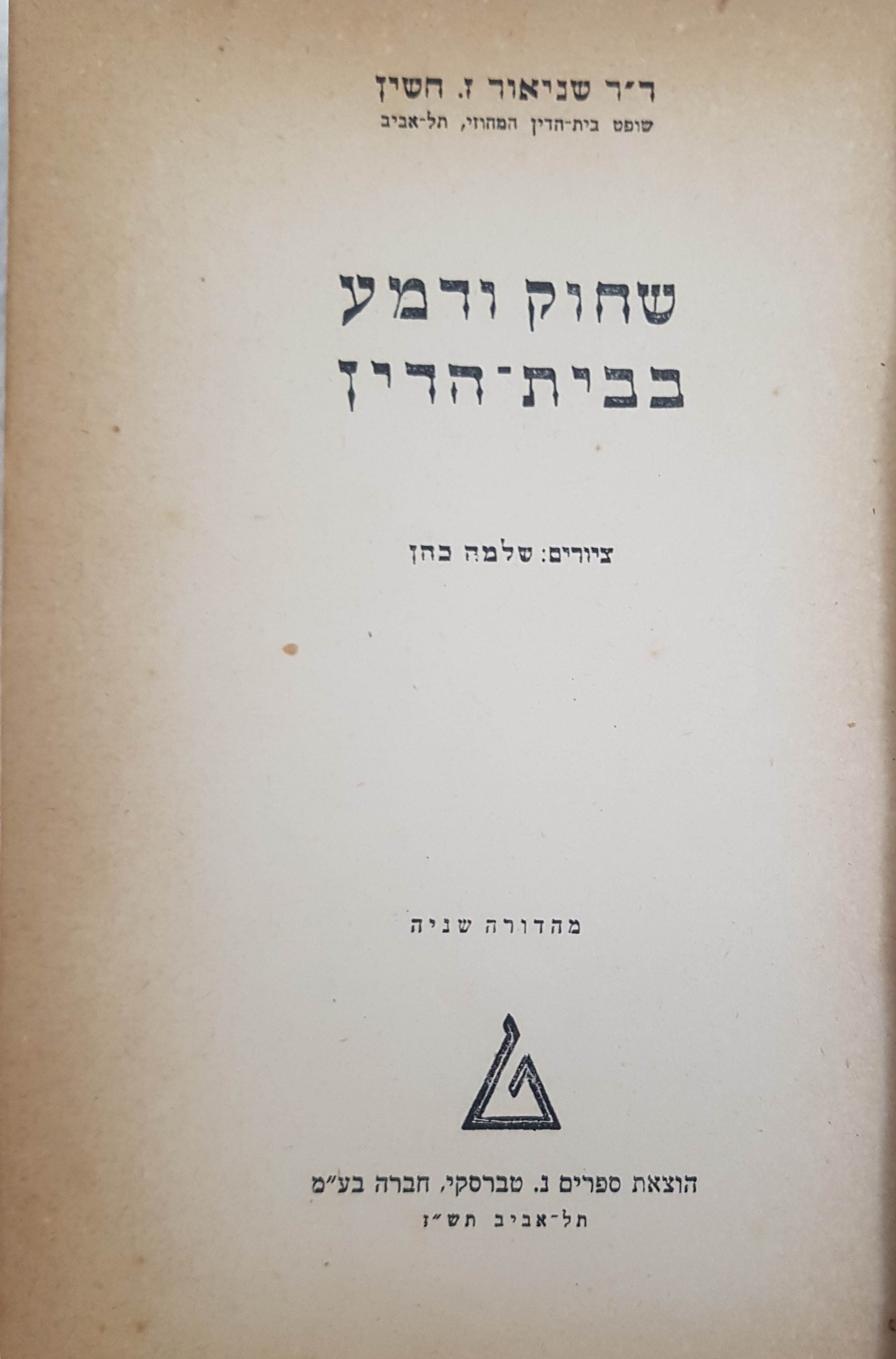
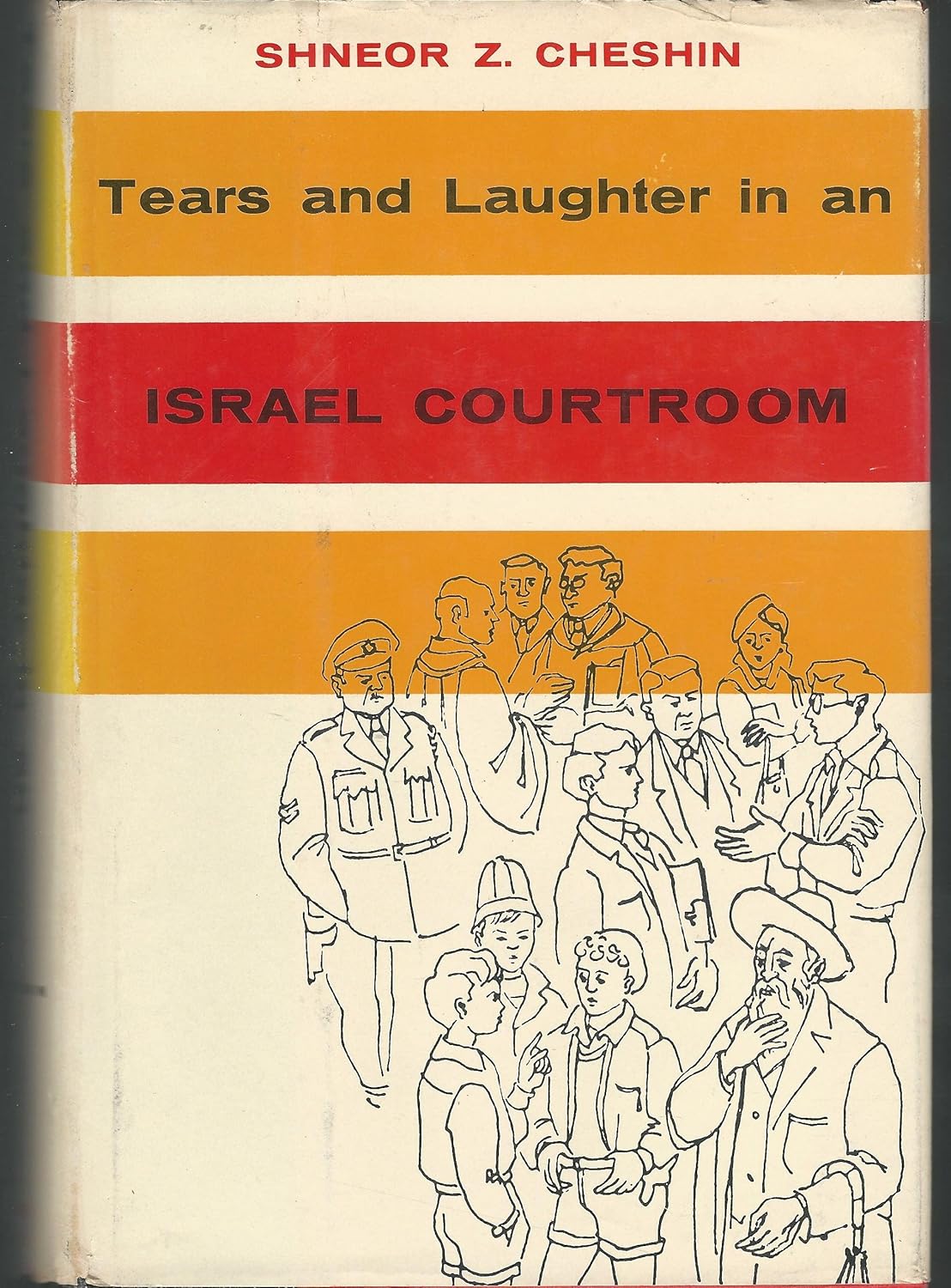
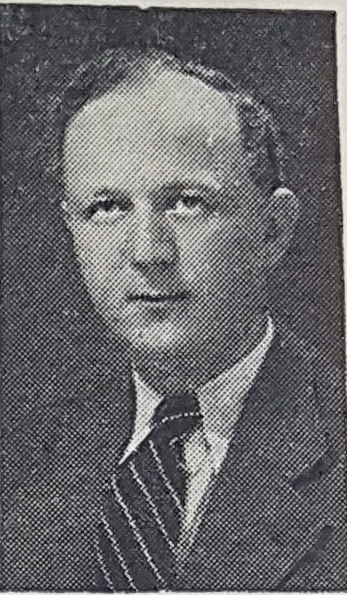
Judge Shneor Zalman Cheshin: Laughter and Tears in the Court (S'chok, V'Dema B'Beit Din)
Palestine Broadcasting Service (PBS), Public Diplomacy and British Judicial Court System in Palestine
Nothing pointed to the negative aspect of British Mandatory system in Palestine (1917-1948) more than the presence of British soldiers, police and the Judicial court system. The Jewish sector largely saw the British in a very negative light. Illegal immigration from Nazi-occupied Europe, riots and disturbances in which the British authorities were seen as siding with the Arab rioters. They were seen as a balance against Jewish Nationalism (the Zionists). While the British authorities helped arm and train a local Jewish police force (the Notrim), even an embryonic Jewish army, from Jabotinsky's Jewish Legion of WWI, that fought in the Gallipoli Peninsula, to the Hebrew Brigade of World War II, that fought mainly in North Africa and Italy) and what is hardly ever talked about, an air force that saw the training of glider and regular pilots (including women) and the start of a civil aviation authority.
The British clamped down on crimes such as smuggling and storing of weapons. A whole spectrum of punishments was meted out by what was seen as old Jew-hating pompous judges with white powdered wigs. Sentences ranged from fines, imprisonment, internment, exile to Cyprus or Africa to capital punishment, death by hanging. Can't get more negative than that.
This sounds like a job for the Palestine Broadcasting Service's public diplomacy program.
Get a judge that can engage with the Jewish sector and give the judge a platform to talk about the quirky cases that he has experienced in his court. The lighter side of the court system, with humor thrown in for good measure. This predates Rumple of the Bailey, or Judge Judy or Judge Dredd for that matter.
Here comes the judge: The judge that was chosen, or he chose them, was Schneor Zalman Cheshin.
Schneor Zalman Cheshin received his JD from New York University in 1931; was a lawyer, 1933-1936; a Justice of the Peace,1937-1944, District Tel Aviv Judge, 1944-1948; and one of five justices of the newly form State of Israel 1948-1959. In 1944, he was given a half-hour bi-monthly broadcast (roughly every two weeks), in Hebrew, to talk about his experiences in the court. The program's name was translated in the Palestine Post as a variation of " The Court Mirror: Impressions from the Law Court" In Hebrew it was named "Perakim Min Ha'vavei Hayehudi B'Beit Hamishpat" פרקים מן ההווי היהודי בבית המשפט
Only 6 or 7 of the transcripts appear in the Hagalgal magazine,out of a total of 34 talks in the first series. Cheshin edited the first 34 transcripts, expanded the talks on several topics and added new material from his daily work, publishing a book in 1947, entitled in Hebrew, S'chock, V' Dema B'Beit Din ( "Laughter and Tears in the Court")
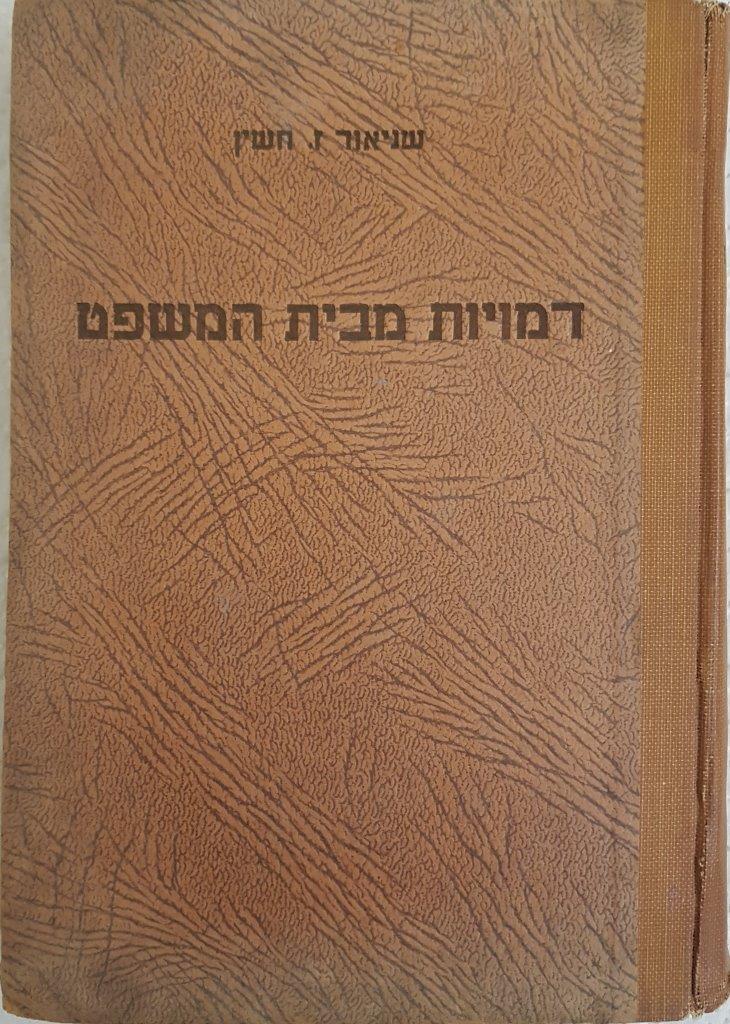
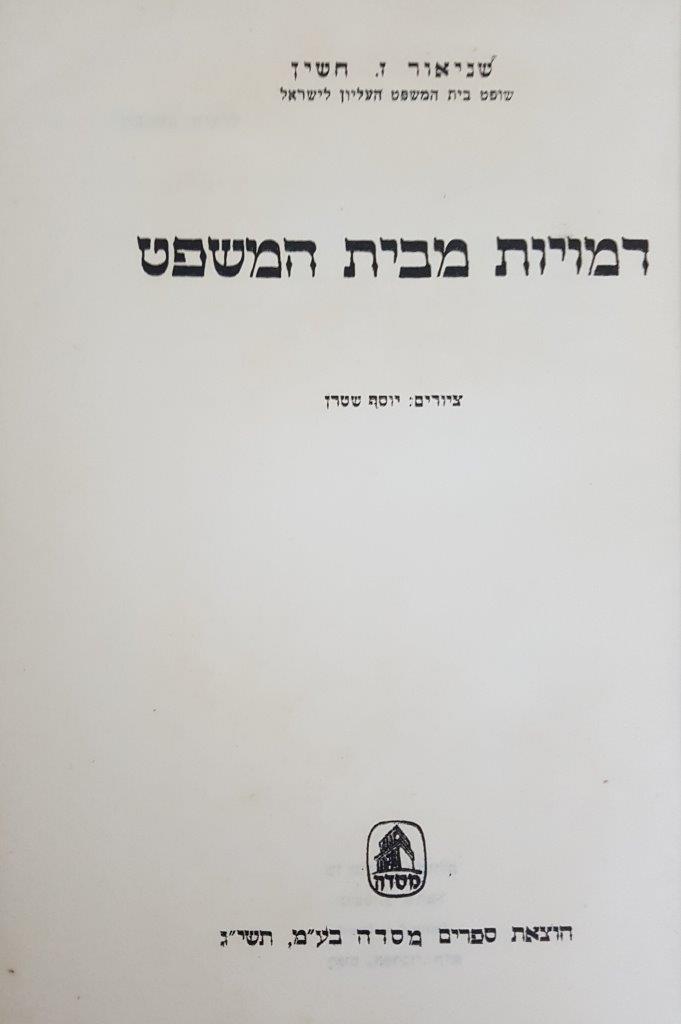
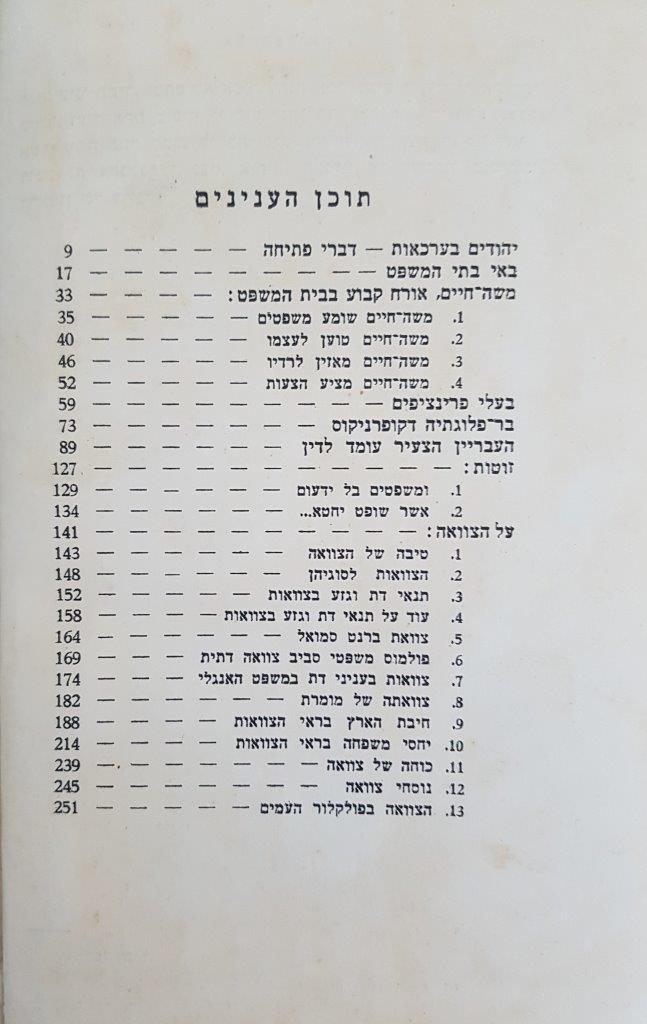
After about a four month gap, Cheshin followed up the success of the original broadcasts with a new set of 20-radio broadcasts entitled in Hebrew "דמויות מבית המשפט" ("Demuyot Me Beit Hamishpat). The name of the series was translated in English in the Palestine Post as "Court-Room Silhouettes". These 15 minute broadcasts began in November 4, 1946. The last broadcast was on the air July 17, 1947.
The PBS obviously did something right with these broadcasts as with the changeover to the new state of Israel and with the replacement of the PBS's "Kol Jerusalem " ("The Voice of Jerusalem") with "Kol Yisrael" ("The Voice of Israel"), Cheshin was given a new slot for his talks on his court-room experience, just six more broadcasts from February 24, 1952 till June 13, 1952, entitled, in Hebrew, "במערכות המשפט" (B'Maarachot Hamishpat). My translation of title something like "In the Court System."
Cheshin then as in the past followed up on these broadcasts by editing the transcripts and adding material to make a second book, "דמויות מבית המשפט" ("Demuyot Me Beit Hamishpat)" ("Court Room Silhouettes) this time published by Masada Press, 1953.
Both titles are long out of print.
Interesting aside. Schneor Zalman Cheshin 's son, Mishael Cheshin, followed in his father's footsteps and also became a Supreme Court Judge, (1992-2006).